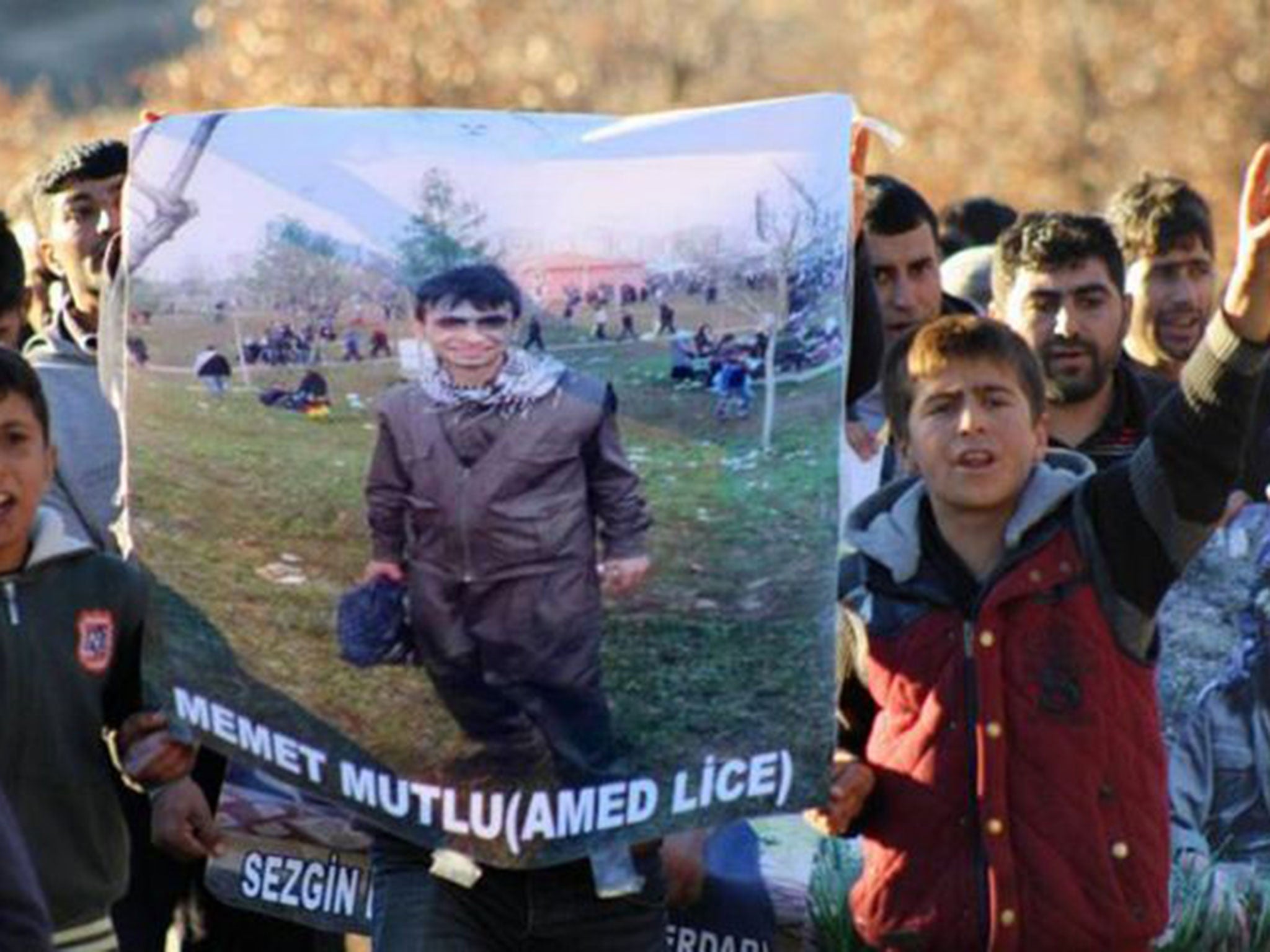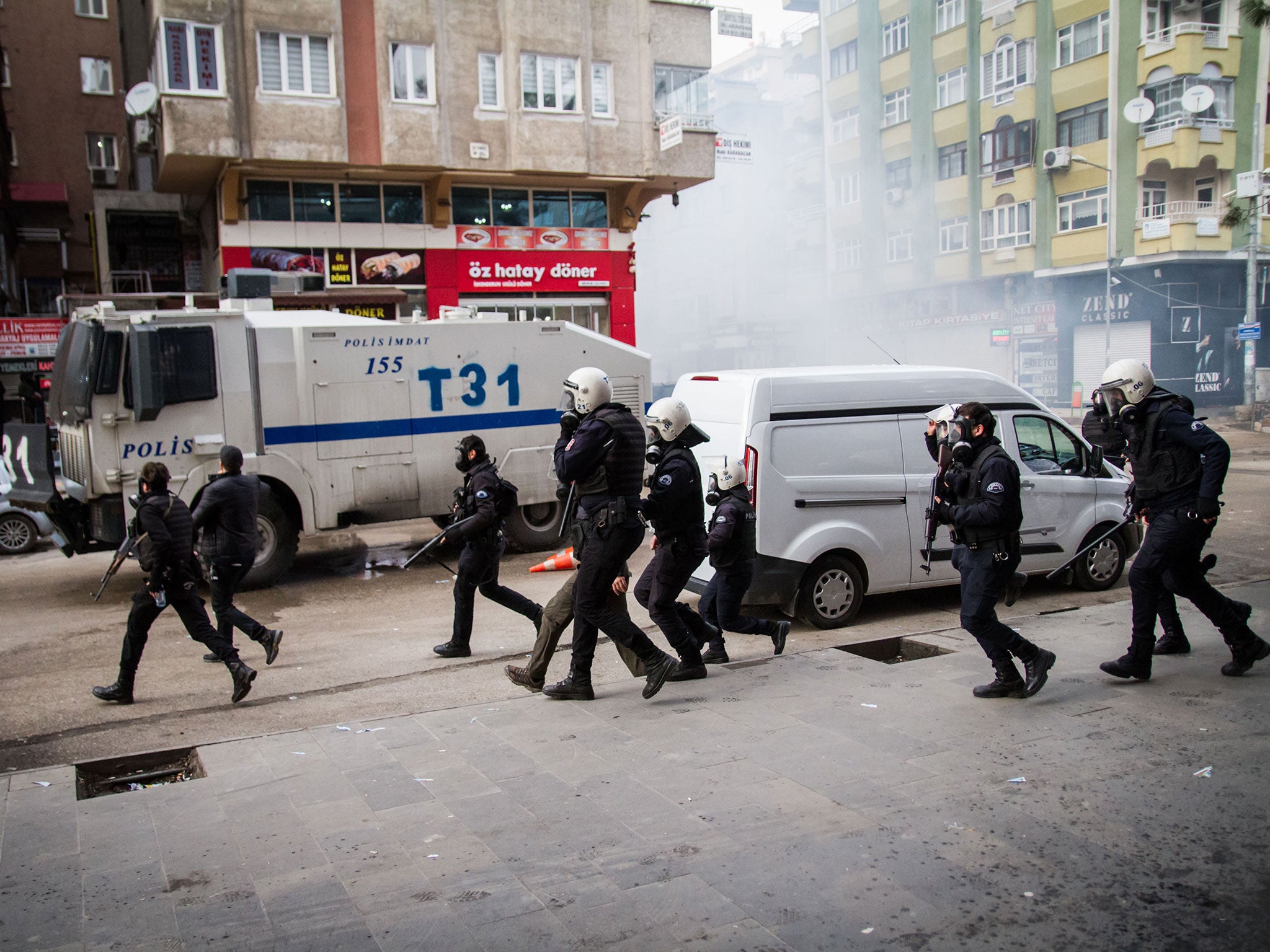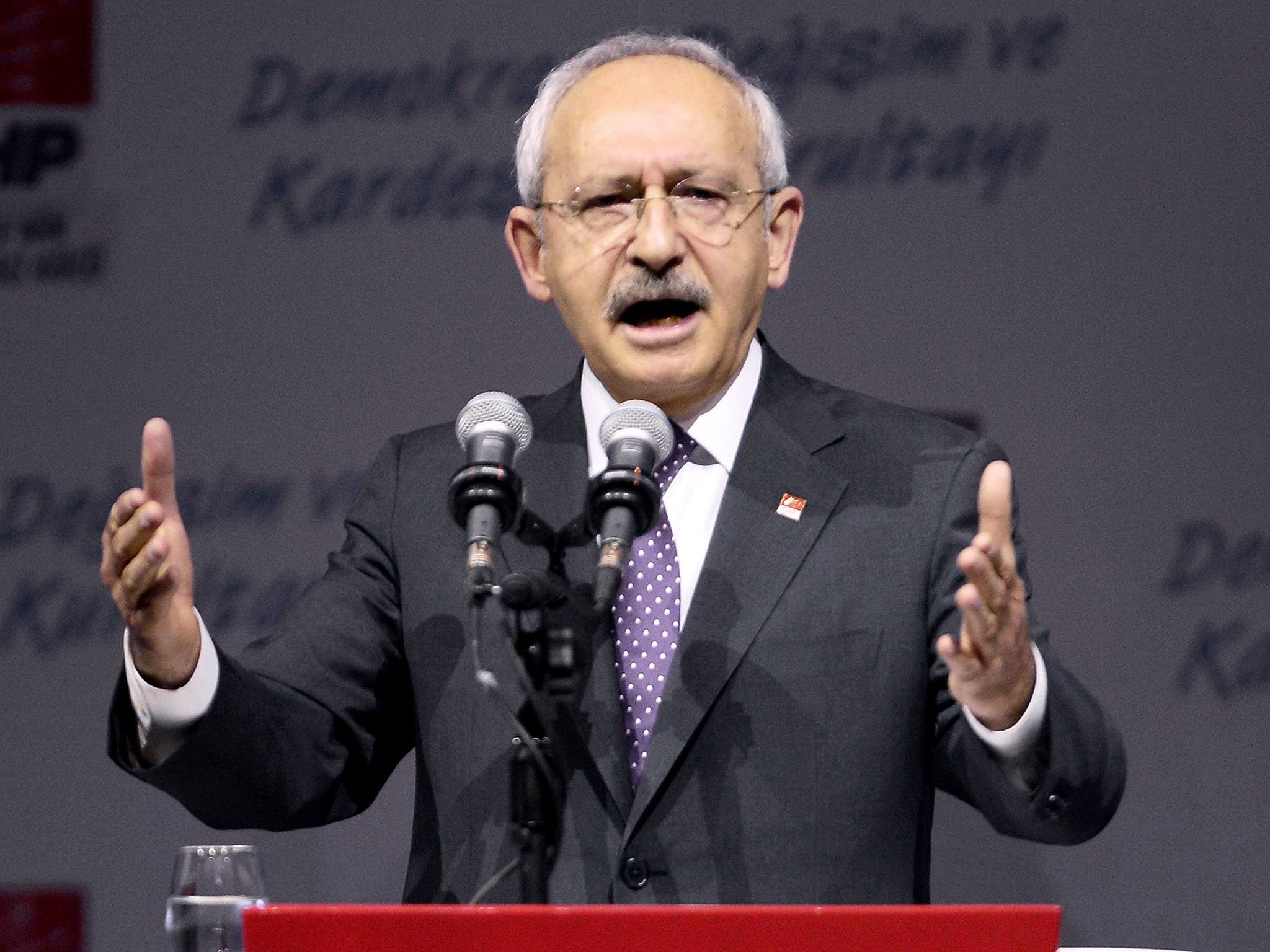Turkey in crisis: The Kurdish teenagers fighting - and dying - in urban clashes with security forces
In the second of our three-part series on the pivotal nation, Laura Pitel visits Diyarbakir and finds youngsters taking on the 'tyranny and persecution' of the police under the banner of the recently formed Patriotic Revolutionary Youth Movement

Your support helps us to tell the story
From reproductive rights to climate change to Big Tech, The Independent is on the ground when the story is developing. Whether it's investigating the financials of Elon Musk's pro-Trump PAC or producing our latest documentary, 'The A Word', which shines a light on the American women fighting for reproductive rights, we know how important it is to parse out the facts from the messaging.
At such a critical moment in US history, we need reporters on the ground. Your donation allows us to keep sending journalists to speak to both sides of the story.
The Independent is trusted by Americans across the entire political spectrum. And unlike many other quality news outlets, we choose not to lock Americans out of our reporting and analysis with paywalls. We believe quality journalism should be available to everyone, paid for by those who can afford it.
Your support makes all the difference.Mehmet Mutlu was not the brightest of boys – likeable enough, but with little interest in learning. There was a sense of inevitability for his teacher when he learnt, last month, that his 16-year-old pupil had been killed in clashes between Kurdish youths and Turkish security forces.
But it was still a shock. “He was lying on the ground, his face in a pool of blood,” he recalled with sadness. “He was my student.”
For 30 years the Kurdistan Workers’ Party (PKK) has engaged in armed struggle against the Turkish state. Now the collapse of a ceasefire last summer has plunged the mainly Kurdish south-east of the country into the bloodiest bout of violence since the 1990s.
With a struggling economy, a population of more than two million Syrian refugees and a volatile border with Syria and Iraq, Turkey can ill afford a long-running internal conflict. Yet its litany of death shows no sign of ending; on Tuesday, three policemen were killed and four more were wounded in a suspected PKK attack in the province of Sirnak.
While previous flare-ups were characterised by tit-for-tat strikes on Turkish army posts and PKK training camps, much of the fighting is now taking place in cities. These urban clashes are being fought by teenagers and 20-somethings under the banner of the recently formed Patriotic Revolutionary Youth Movement.

Announced in February 2013, shortly before the PKK declared a ceasefire, its stated aims included tackling drugs and prostitution as well as protecting communities from what it termed “the tyranny and persecution” of the police.
Known by the initials YDG-H, the youth movement has formed armed branches across the south-east. When the conflict reignited last July, its members dug trenches among homes and shops and threw up barricades. It declared “autonomous zones”, daring the state to force it out.
Mehmet Mutlu’s story is typical of the tales told by friends, relatives and neighbours of the children of the 1990s who are fighting street to street in the Sur district of Diyarbakir.
Mehmet’s teacher, who asked for his name and subject to be withheld for fear of losing his job, said that his pupil’s father was imprisoned for about 14 years “for political reasons”. His older brother, he said, had gone to fight in Rojava, the Kurds’ name for the territory they hold in northern Syria. “This kind of child, whose dad was in prison for 13, 14 years, they have a feeling of hate towards those who did this,” he said.
Chain smoking as he spoke, the teacher, whose school is in the middle of the embattled Sur area, painted a picture of classrooms filled with poor but politicised students. The south-east has unemployment rates of up to 24 per cent and after-school jobs left little time to study, he said. Having grown up using Kurdish at home, many spoke poor, accented Turkish.
Despite some reforms by the ruling Justice and Development Party (AKP), many students felt alienated, the teacher claimed, by an educational system that denied them their distinct ethnic and cultural identity. “On Monday and Friday we have to sing the national anthem and... most of them don’t sing it,” he said. “We play it, but they don’t sing. When it’s not loud enough, they have to do it again.
Many young people have spent spells in prison for hurling stones or Molotov cocktails. Mesut Simeksek, 25, who was killed in December, served three years in jail before joining the fighting in Diyarbakir, according to his older sister, Guler Sevikek.
Their family took refuge in Sur after fleeing the small town of Lice in the 1990s. Like Mehmet, Mesut had a brother fighting in Syria and was traumatised by the state’s treatment of his father and brother. His sister recalled: “They were forced to lie on the street and were surrounded by dogs. Mesut used to say: ‘How can I ever forget that image?’”
Those fighting in Diyarbakir are no angels. Mesut’s sister admits that he was armed, though she disputes claims by pro-government media that he was among the most dangerous terrorists in Diyarbakir. Mehmet’s teacher, too, believes he carried a weapon, though he is alarmed by claims on pro-Kurdish news sites that Mehmet was shot while his hands were cuffed behind his back.
The decision by these young men to fight in urban areas has forced thousands of families to flee their homes and left others trapped. Ahmad Yasar, a father of seven who runs a restaurant just inside the old city walls, was part of a delegation that pleaded with them not to entrench themselves in the middle of their city. “A group of us, shopkeepers and tradesmen, went to those streets and said: this is wrong,” he said. “Of course they didn’t listen to us. They didn’t care what we said.”
But there is also sympathy for their circumstances. Umit, an artist whose old basalt house has been damaged by the clashes, said that the youths had no other prospects. “Those streets are the only thing in their hands,” he said. “It’s about their very existence.”
Though it supports the PKK’s stated aim of greater Kurdish autonomy, it is unclear to what extent the YDG-H youth movement is controlled by older, more established insurgents.

In November, the PKK leader Cemil Bayik denied that the two organisations were linked. But, just months before the group was formed, Murat Karayilan, head of a PKK umbrella group, called for a “youth revolution” against state policies in the south-east.
Bill Park, a visiting scholar at Tobb Etu University in Ankara, said that, while “nothing happens in the south-east without the PKK”, the youth campaign appeared to be at least partly “improvised”. He added: “I’m sure that the PKK is not in full control.”
The agenda for a meeting between David Cameron and his Turkish counterpart Ahmet Davutoglu was due to include Turkey’s role in the battle against Isis and efforts to stem the refugee crisis. Given the scale of those two tasks alone, Britain and Turkey’s other Western allies are anxious for the Kurdish conflict to be halted as soon as possible.
The stories told on the streets of Diyarbakir offer worrying signs about the prospects for long-lasting peace. “Our generation is the one that you can talk with, hold negotiations with,” said Mr Yasar, the weary restaurant owner. “This new generation is more radical. They feel that they have no link with this country.”
Party leader faces jail for ‘dictator’ comment
Lawyers for President Recep Tayyip Erdogan have filed a lawsuit against Turkey’s main opposition leader, Kemal Kilicdaroglu, for calling Mr Erdogan a dictator.
Mr Kilicdaroglu is accused of “openly insulting the President”, an offence punishable by four years in prison, after defending a group of academics who face investigation after criticising Mr Erdogan’s military action in mainly Kurdish areas.
“Academics who express their opinions have been detained one by one on instructions given by a so-called dictator,” said the Republican People’s Party leader.
Reuters
Join our commenting forum
Join thought-provoking conversations, follow other Independent readers and see their replies
Comments